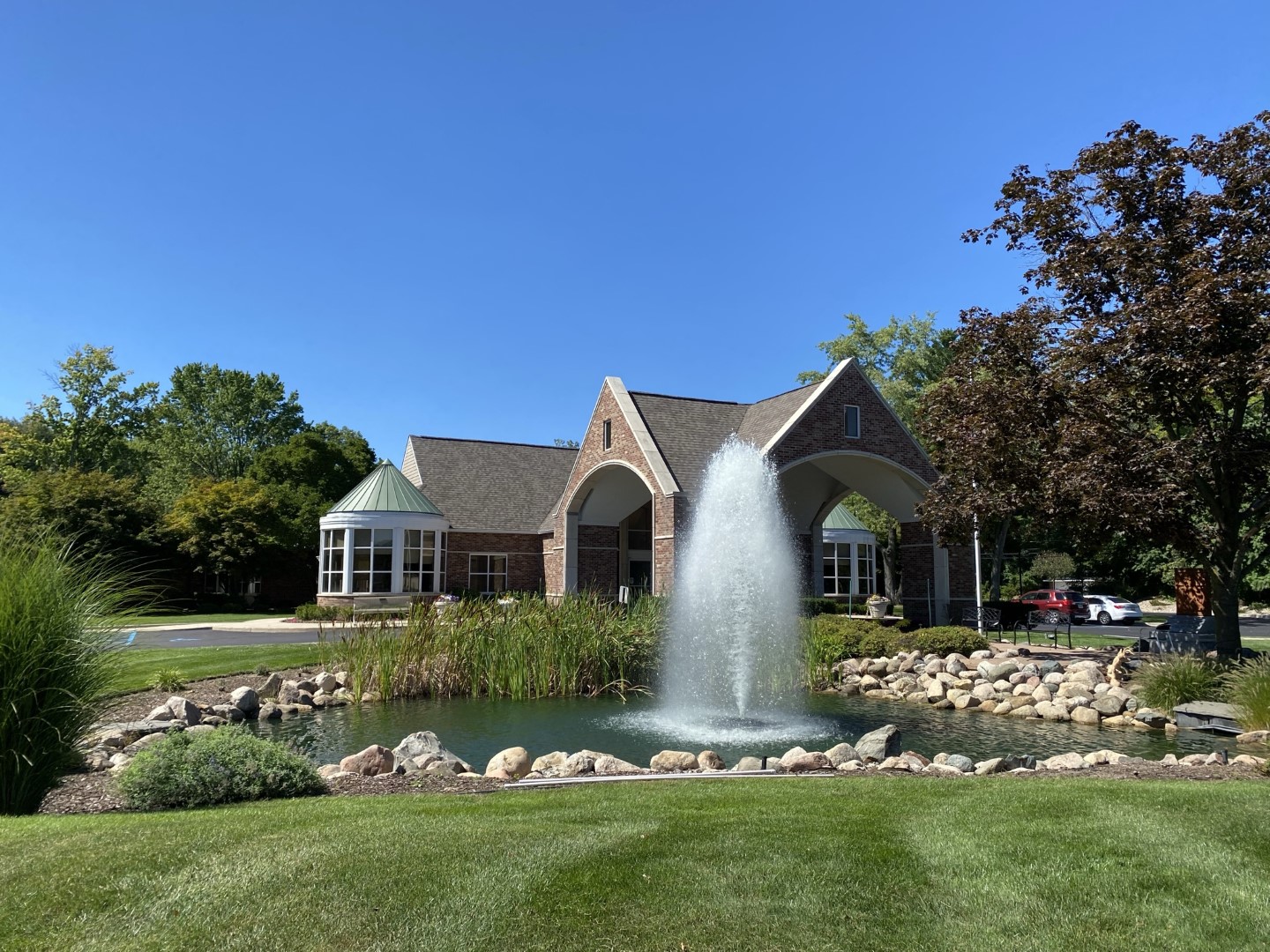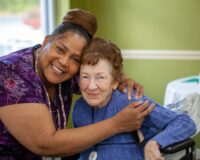Pneumonia can pose serious health risks for seniors, especially those in assisted living, where the close community environment and age-related immune changes increase vulnerability. By taking proactive steps to prevent pneumonia and recognizing early signs, families and caregivers can protect their loved ones and promote respiratory health. Here’s a guide on preventing and treating pneumonia in seniors, with actionable tips to keep them safe and well.
-
Encourage Regular Vaccinations
Why It’s Important: Vaccinations, including the pneumococcal and annual flu vaccines, play a key role in preventing pneumonia. These vaccines help reduce the risk of infection and minimize the severity if pneumonia does occur.
Tips for Supporting Vaccination:
- Discuss Vaccination Options with Staff: Work with facility staff to ensure your loved one is up-to-date on recommended vaccinations, including pneumococcal and flu shots.
- Schedule Annual Vaccines: The flu shot is recommended annually for seniors, as it reduces the likelihood of flu-related pneumonia. Keep a reminder to check each year as flu season approaches.
- Educate on the Benefits: If your loved one is hesitant, explain how vaccines protect their health and reduce hospitalizations, helping them stay strong and active.
Family Involvement Tip: If allowed, accompany your loved one during vaccination appointments to provide reassurance and support. Regular follow-ups can also help ensure they’re protected year-round.
-
Promote Good Hygiene Practices
Why It’s Important: Proper hygiene is essential in preventing the spread of respiratory infections that can lead to pneumonia. Simple hygiene practices significantly reduce exposure to germs and bacteria.
Tips for Maintaining Good Hygiene:
- Encourage Frequent Handwashing: Regular handwashing with soap and water, especially after meals and activities, can prevent the spread of germs. Hand sanitizers are also helpful when handwashing isn’t immediately available.
- Promote Respiratory Etiquette: Remind your loved one to cover their mouth and nose when coughing or sneezing to prevent the spread of respiratory droplets.
- Disinfect High-Touch Surfaces: Regularly cleaning high-touch items like phones, remote controls, and handrails helps minimize exposure to harmful bacteria and viruses.
Family Involvement Tip: Provide small bottles of hand sanitizer or sanitizing wipes for personal use. During visits, you can also help wipe down frequently used items in their room to keep the space clean.
-
Support a Balanced, Nutrient-Rich Diet
Why It’s Important: A well-balanced diet strengthens the immune system, providing seniors with the nutrients they need to fight off infections. Proper nutrition plays a critical role in both prevention and recovery from illnesses like pneumonia.
Tips for Supporting a Healthy Diet:
- Encourage Immune-Boosting Foods: Foods rich in vitamins C, D, and E, as well as antioxidants, help boost immunity. Include a variety of fruits, vegetables, lean proteins, and whole grains in their diet.
- Stay Hydrated: Staying well-hydrated keeps the respiratory tract moist, reducing the likelihood of infection. Encourage water, herbal teas, and broth-based soups.
- Limit Sugary and Processed Foods: Processed foods and added sugars can weaken the immune system. Instead, opt for whole, natural foods that offer more vitamins and minerals.
Family Involvement Tip: Bring healthy snacks during visits, like fresh fruits or nuts, which provide immune-supporting nutrients and make healthy eating more enjoyable.
-
Encourage Regular Physical Activity
Why It’s Important: Physical activity promotes lung health, circulation, and a strong immune system, all of which reduce the risk of respiratory infections. Even gentle exercise can make a difference in respiratory strength and stamina.
Tips for Promoting Physical Activity:
- Encourage Low-Impact Exercises: Activities like walking, stretching, or chair yoga support lung function without causing strain. Assisted living facilities often offer these activities in a safe, supervised setting.
- Practice Deep Breathing Exercises: Deep breathing strengthens the lungs and improves oxygen intake, which can benefit respiratory health. Encourage simple breathing exercises during the day.
- Suggest a Consistent Routine: Aim for small, regular activities rather than intense exercise. A daily walk or gentle stretching helps keep the body active and resilient against infections.
Family Involvement Tip: Join your loved one for a walk around the facility or participate in an activity class together during visits. Shared physical activities provide both health benefits and quality time together.
-
Monitor for Early Symptoms of Pneumonia
Why It’s Important: Early detection of pneumonia symptoms enables prompt treatment, which can prevent complications. Common symptoms include cough, fever, shortness of breath, chest pain, and fatigue.
Tips for Recognizing Symptoms:
- Watch for Respiratory Changes: Listen for signs of a persistent cough, wheezing, or difficulty breathing. Respiratory changes, even if mild, may indicate the early stages of pneumonia.
- Observe Energy and Alertness Levels: Fatigue, confusion, or sudden lethargy are common signs of infection in seniors. Pay attention to any noticeable changes in your loved one’s behavior or energy.
- Note Fever or Chills: Check for fever or chills, as these are key indicators of infection. If your loved one experiences these symptoms, consult with facility staff or a healthcare provider for immediate assessment.
Family Involvement Tip: During visits, observe your loved one’s breathing and ask about any recent coughs or respiratory symptoms. Early awareness helps ensure timely medical support if needed.
-
Ensure a Comfortable and Restful Environment
Why It’s Important: Adequate rest and a comfortable environment are essential for preventing and recovering from respiratory infections. Sleep and relaxation give the body a chance to recover and fight off illness.
Tips for Creating a Restful Environment:
- Promote a Consistent Sleep Schedule: Encourage regular bedtimes and wake-up times to support a restful sleep pattern, as quality sleep is vital for immunity and recovery.
- Maintain a Clean, Airy Room: Fresh air and a clean environment contribute to respiratory health. Regularly opening windows (weather permitting) and using air purifiers if allowed can help improve air quality.
- Reduce Stress and Promote Relaxation: Stress can weaken the immune system. Encourage relaxation techniques like gentle music, reading, or meditation to help your loved one feel calm and at ease.
Family Involvement Tip: Help set up a comfortable sleep environment during visits, such as adjusting lighting or adding a cozy blanket. A comfortable setting promotes quality sleep and overall well-being.
-
Collaborate with Facility Staff for a Comprehensive Prevention Plan
Why It’s Important: Assisted living staff play an essential role in monitoring and supporting seniors’ health. Collaborating with staff ensures a thorough prevention and treatment plan, providing peace of mind for both seniors and their families.
Tips for Working with Staff:
- Discuss Preventive Measures: Meet with staff to discuss preventive measures like regular handwashing, health screenings, and dietary support for immune health.
- Request Regular Health Monitoring: Ensure facility staff monitor your loved one’s respiratory health, especially during flu season or if any respiratory symptoms arise.
- Understand the Treatment Protocols: Inquire about the facility’s response plan in case of respiratory infections, including access to medical care, symptom monitoring, and isolation protocols if needed.
Family Involvement Tip: Maintain open communication with facility staff, checking in on your loved one’s health regularly. Collaborative care helps ensure a supportive, safe environment and enables quick intervention if symptoms develop.
Preventing and treating pneumonia in seniors in assisted living requires a proactive, collaborative approach. From vaccinations and good hygiene to monitoring early symptoms and ensuring restful sleep, families and caregivers can help reduce the risk of infection and promote a healthy, comfortable lifestyle. By staying engaged, providing emotional support, and working closely with assisted living staff, families play a key role in safeguarding their loved ones’ respiratory health. With these strategies, seniors can enjoy greater peace of mind and a healthier, happier life throughout the year.





